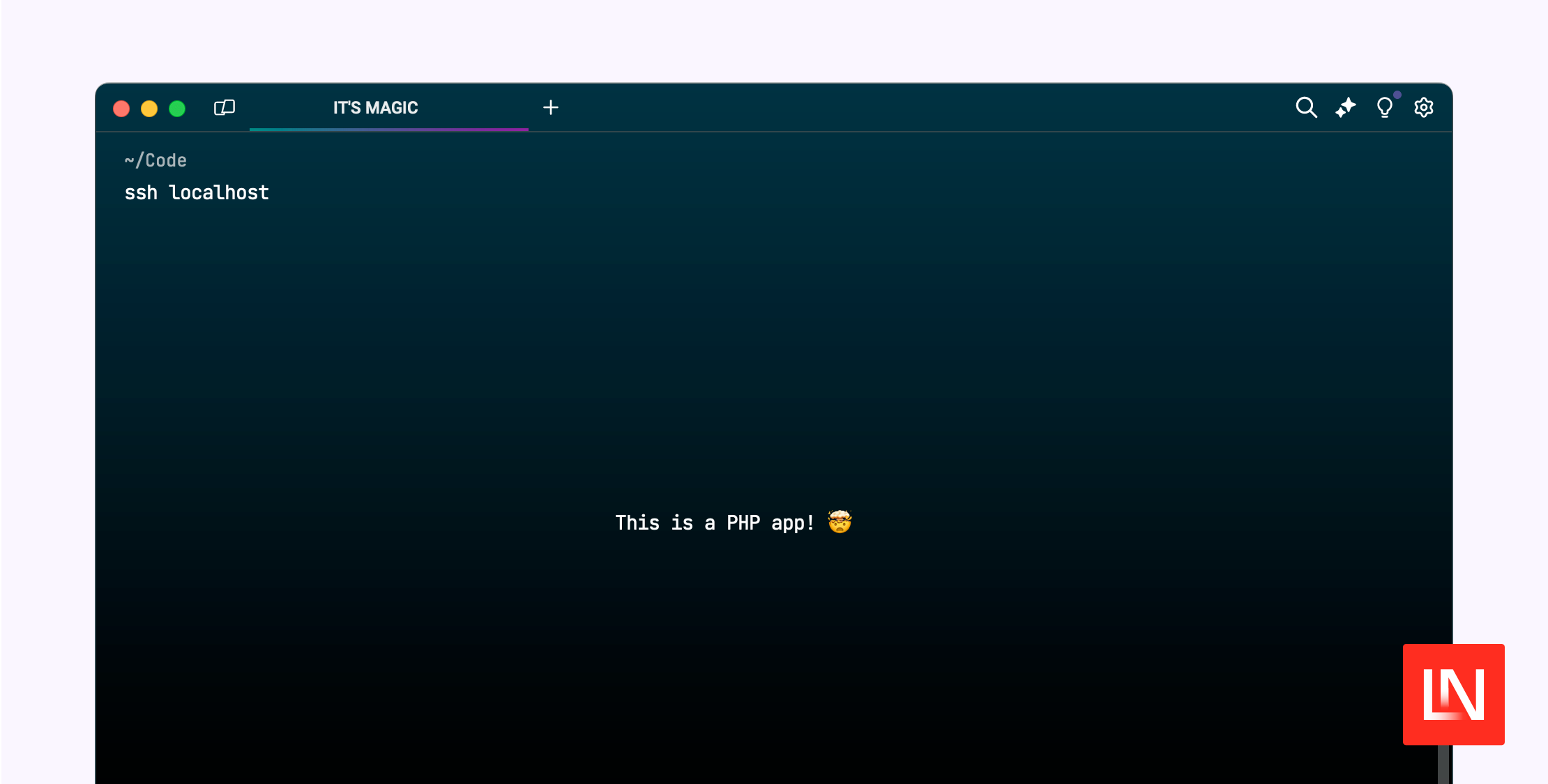RemoteIoT Web SSH: The Ultimate Guide For Secure Remote Access
In today's digital landscape, RemoteIoT Web SSH has become an essential tool for businesses and individuals seeking secure remote access to IoT devices and networks. This technology provides seamless connectivity while maintaining robust security protocols, ensuring that sensitive data remains protected. By leveraging Web SSH, users can manage and monitor IoT devices from anywhere in the world with just a web browser.
As the Internet of Things (IoT) continues to expand, the need for secure remote access solutions has never been greater. Traditional methods of accessing devices remotely often fall short when it comes to security and ease of use. RemoteIoT Web SSH addresses these challenges by offering a browser-based solution that is both secure and user-friendly.
This article will explore the intricacies of RemoteIoT Web SSH, including its benefits, setup process, security features, and best practices. Whether you're a tech enthusiast or a business professional, this guide will provide you with the knowledge and tools needed to harness the power of Web SSH for your IoT infrastructure.
Read also:Unveiling The Mystery Behind Hsoda 052 A Comprehensive Guide
Table of Contents
- What is RemoteIoT Web SSH?
- Benefits of Using RemoteIoT Web SSH
- How to Set Up RemoteIoT Web SSH
- Security Features of RemoteIoT Web SSH
- Best Practices for RemoteIoT Web SSH
- Common Issues and Troubleshooting
- Comparison with Traditional SSH
- Use Cases for RemoteIoT Web SSH
- Future of RemoteIoT Web SSH
- Conclusion and Next Steps
What is RemoteIoT Web SSH?
RemoteIoT Web SSH is a cutting-edge solution that allows users to access IoT devices and networks remotely through a web browser. Unlike traditional SSH clients, which require specific software installations, Web SSH operates entirely within the browser, making it accessible from any device with internet connectivity.
This technology utilizes secure encryption protocols to protect data during transmission, ensuring that sensitive information remains safe from unauthorized access. By integrating Web SSH into IoT ecosystems, organizations can enhance their operational efficiency while maintaining stringent security standards.
Key Features of RemoteIoT Web SSH
- Browser-based access for convenience
- End-to-end encryption for secure communication
- Support for multiple devices and platforms
- Easy integration with existing IoT infrastructures
Benefits of Using RemoteIoT Web SSH
Adopting RemoteIoT Web SSH offers numerous advantages for businesses and individuals alike. These benefits range from improved accessibility to enhanced security measures, making it an ideal choice for modern IoT deployments.
Enhanced Security
One of the primary benefits of RemoteIoT Web SSH is its robust security features. By leveraging advanced encryption algorithms, Web SSH ensures that all data transmitted between devices remains protected from potential threats. This level of security is crucial in today's increasingly connected world, where cyberattacks are becoming more sophisticated.
Increased Accessibility
With RemoteIoT Web SSH, users can access their IoT devices and networks from anywhere in the world using just a web browser. This eliminates the need for specialized software installations, making it easier for teams to collaborate and manage IoT infrastructures remotely.
How to Set Up RemoteIoT Web SSH
Setting up RemoteIoT Web SSH involves several straightforward steps. By following these instructions, you can quickly integrate this technology into your IoT ecosystem and start enjoying its benefits.
Read also:Discover The Inspiring Journey Of Valerie Walker A Beacon Of Strength And Resilience
Step-by-Step Guide
- Install the necessary server software on your IoT devices
- Configure the server settings to enable Web SSH access
- Set up user accounts and permissions for secure access
- Test the connection using a web browser
For more detailed instructions, refer to the official documentation provided by the RemoteIoT Web SSH developers.
Security Features of RemoteIoT Web SSH
Security is a top priority for RemoteIoT Web SSH, and the technology incorporates several advanced features to safeguard data and devices. These features include:
- End-to-end encryption using AES-256
- Two-factor authentication for added protection
- IP whitelisting to restrict access to authorized users
- Session timeout settings to prevent unauthorized access
By implementing these security measures, RemoteIoT Web SSH ensures that your IoT infrastructure remains protected from potential threats.
Best Practices for RemoteIoT Web SSH
To maximize the effectiveness of RemoteIoT Web SSH, it's essential to follow best practices for setup and usage. These practices will help you maintain optimal security and performance while using this technology.
Regularly Update Software
Keep your RemoteIoT Web SSH software up to date with the latest security patches and improvements. This ensures that your system remains protected against emerging threats.
Use Strong Passwords
Create strong, unique passwords for all user accounts and enable two-factor authentication wherever possible. This adds an extra layer of security to your RemoteIoT Web SSH setup.
Common Issues and Troubleshooting
While RemoteIoT Web SSH is a powerful tool, users may encounter issues during setup or operation. Below are some common problems and their solutions:
Connection Errors
If you're experiencing connection issues, ensure that your server settings are correctly configured and that your device has an active internet connection. Additionally, check your firewall settings to ensure they are not blocking Web SSH traffic.
Comparison with Traditional SSH
RemoteIoT Web SSH offers several advantages over traditional SSH methods, including:
- Browser-based access for greater convenience
- Enhanced security features
- Improved compatibility with modern devices
While traditional SSH remains a viable option for some use cases, RemoteIoT Web SSH provides a more versatile and secure solution for IoT applications.
Use Cases for RemoteIoT Web SSH
RemoteIoT Web SSH can be applied in various scenarios, including:
Remote Device Management
With Web SSH, IT administrators can easily manage IoT devices from a centralized location, streamlining operations and reducing downtime.
Secure Data Transfer
Organizations can use RemoteIoT Web SSH to transfer sensitive data securely between devices and networks, ensuring compliance with industry regulations.
Future of RemoteIoT Web SSH
As IoT continues to evolve, the role of RemoteIoT Web SSH will become even more critical. Future developments may include enhanced security features, improved performance, and expanded compatibility with emerging technologies. By staying ahead of these trends, businesses can ensure their IoT infrastructures remain secure and efficient.
Conclusion and Next Steps
RemoteIoT Web SSH represents a significant advancement in secure remote access solutions for IoT devices and networks. By leveraging this technology, organizations can enhance their operational efficiency while maintaining stringent security standards.
To get started with RemoteIoT Web SSH, follow the setup guide outlined in this article and explore the official documentation for additional resources. We encourage readers to share their experiences and insights in the comments section below and to explore other articles on our site for more information on IoT and related technologies.

